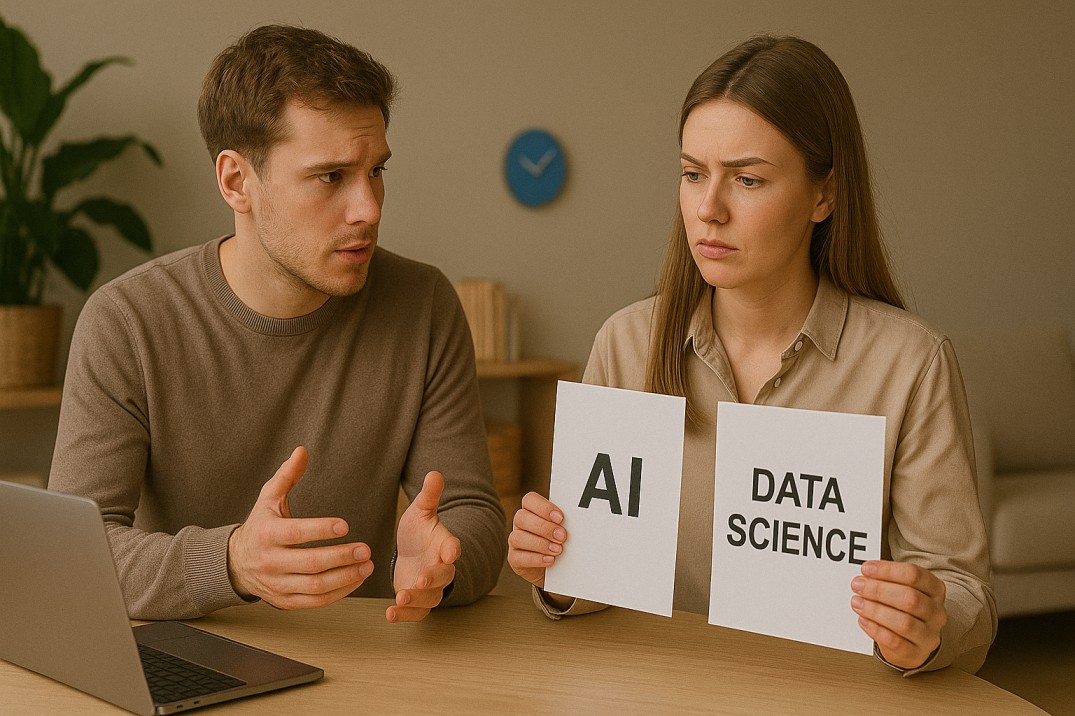Is It Too Late to Start a Career in Data Science? (With or Without a Degree)

Is It Too Late to Start a Career in Data Science? (With or Without a Degree)
If you're wondering whether you're too late to start a career in data science, you’re not alone. Many people in their 30s, 40s, or even 50s ask the same thing. Especially if they didn’t study computer science or mathematics in school.
The short answer is: No, it's not too late. But succeeding in this field does require focused effort, strategic upskilling, and most importantly - clarity on what the journey really looks like.
Let’s break it down step-by-step with the most common questions learners ask before switching careers to data science.
Can you really become a data scientist without a computer science degree?
Yes, and not just hypothetically. There are thousands of working professionals in data science roles today who came from non-tech backgrounds: journalism, teaching, sales, HR, even performing arts.
The reason is simple - data science is more about critical thinking, analytical problem solving, and storytelling with numbers than it is about memorizing syntax.
That said, you’ll still need to become proficient in tools like:
- Python and SQL
- Pandas, NumPy, and scikit-learn
- Jupyter Notebooks or Google Colab
- Data visualization libraries (Matplotlib, Seaborn)
You’ll also need to understand statistical thinking, probability, and machine learning algorithms.
So while a CS degree can help, it’s not a requirement. What counts is building the right skill stack through guided practice.
What are the essential skills you need to learn data science?
To land your first data science job, these five pillars matter most:
- Programming – Python is the standard. Learn how to load, clean, manipulate, and analyze datasets.
- Math & Stats – Basics of probability, distributions, hypothesis testing, and regression.
- Data Wrangling – Real-world datasets are messy. Learn to clean and preprocess them.
- Machine Learning – Understand both supervised and unsupervised learning, and know when to use what.
- Storytelling & Communication – Visualization and business insight matter. Tools like Tableau or Power BI are helpful.
If you're completely new, start with one skill at a time. Build projects for each. Then connect the dots.
Does age matter in data science hiring?
Not in the way people fear. Employers don't reject applicants for being "too old" - they reject applicants who can’t demonstrate relevant skills.
In fact, career switchers often bring valuable soft skills:
- Communication
- Business domain expertise
- Project ownership
- Empathy and maturity
Many managers prefer hiring someone in their 30s or 40s who has clear motivation and proven problem-solving experience over a fresh grad who needs handholding.
So don’t disqualify yourself. Instead, position your background as a strength.
What learning paths are available if you don’t want to go back to college?
You can avoid the traditional route and still gain credibility. Here are some proven options:
- Online data science certificate programs from reputed platforms or universities
- Self-paced courses with GitHub projects
- Bootcamps that offer mentorship, live instruction, and career support
- Project-based learning communities where you collaborate on real-world challenges
The key is consistency. Pick one high-quality resource, and stick with it for 6–12 months.
Do you need a master’s degree to get into data science?
No, but it can accelerate your journey. A master’s in data science gives you structure, depth, and often access to internships or placement services.
However, it also comes with a higher time and cost investment. If you're mid-career or budget-conscious, a data science certificate program may give you a faster ROI.
Look for programs that offer:
- Live mentorship
- Portfolio-building projects
- Career coaching
The best path is the one that fits your schedule, learning style, and financial situation.
How long does it realistically take to switch into data science?
Most serious learners take between 6 to 18 months to land their first data role, depending on:
- Starting skill level
- Learning hours per week
- Clarity of path and mentorship access
- Project-building consistency
Here’s a sample timeline:
- 0–3 months: Python, math, and exploratory data analysis
- 3–6 months: Machine learning and end-to-end projects
- 6–12 months: Internships, freelance gigs, job applications
You don’t need to rush. Focus on depth, not speed.
Is a certificate enough to get hired?
A certificate proves you've completed coursework - but it won't get you hired alone. What matters most is your portfolio and how you talk about your work.
To stand out:
- Build 3–5 end-to-end projects on GitHub
- Document your process clearly
- Use Kaggle datasets or build something from scratch
- Present your insights visually and contextually
Your goal is to show you can think like a data scientist - not just that you watched a bunch of videos.
What job titles should you aim for first?
Instead of aiming for “Data Scientist” right away, look for titles like:
- Data Analyst
- Junior Data Scientist
- Business Intelligence Analyst
- ML Intern
- Data Engineer (entry level)
These allow you to get real-world experience and grow into more complex roles over time.
How can you position your past career experience as an asset?
Think of your career pivot as a translation, not a reset.
If you worked in finance, build models for stock analysis. If you're from HR, analyze attrition trends. If from sales, predict lead conversions.
Build domain-specific projects that show how your industry knowledge + new skills = value.
Also:
- Contribute to open-source or data-for-good projects
- Share your journey on LinkedIn to build visibility
- Reach out to mentors or peers for project feedback
Networking can open doors even before your resume is perfect.
What are common mistakes to avoid when switching to data science?
- Shiny object syndrome – Jumping between 10 platforms without mastering one
- Skipping fundamentals – Learning frameworks without understanding the math
- No portfolio – Watching videos but building nothing
- Poor storytelling – Not being able to explain your work to non-technical people
- Going it alone – Not joining any community or asking for help
Avoiding these can save you months.
Final Thought
It’s not too late to start a career in data science - no matter your age or background.
With the right mindset, roadmap, and real effort, you can move into this field confidently. Start with one skill. Then one project. Then the next.
Whether you choose a certificate, an online master’s, or a self-taught path, the goal is the same: learn how to solve real problems with data.
You’re not behind. You’re just beginning.
Read more . . .
Join a thriving global community of learners
Our community across all our learning platforms spans over 56 countries and over 8000 learners
Weekly updates on AI and Data Sience
Be a part of a vibrant AI community





.png)














